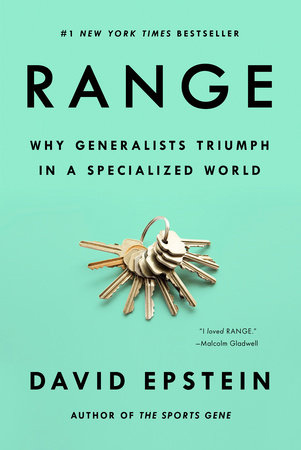| About the Book | |
|---|---|
| Title: | Range: Why Generalists Triumph in a Specialized World |
| Author: | David Epstein |
| Length: | 352 pages (hardcover) |
| Publisher: | Riverhead Books |
| Copyright Year: | 2019 |
Welcome to the first installment of our new monthly feature: the BTM Book Report. In these reports, we’ll take a look at books from the worlds of business, science, sports, mental health, and more and apply them to bowling. Why? Because as bowlers, coaches, and pro shop professionals, we can often gain insight and improve performance by applying research and best practices used in other environments.
Sometimes, the links to bowling will be obvious. General mental training books or mental training books focused on other sports will have easy parallels to bowling’s mental game. In other cases, the link might be less obvious at first glance. At the end of each book report, we’ll also recommend who should read the book. While everyone can gain from the information, some books are more directly applicable to coaches, others are better suited to bowlers, and others yet are better for team and league organizers.
Either way, we’ll be selecting books that have been read by Bowling This Month’s staff that we believe have applications to the sport of bowling. We’ll summarize the key points and then detail how they can apply to your game. The first book on our list is part of the inspiration for this new feature, as it deals with the importance of learning from a wide range of sources in order to maximize the chances of success in your specialized field.
In Range, David Epstein argues that early specialization is really only beneficial in specific types of learning environments, and that the vast majority of successful people benefit from a “sampling period” in which other domains are explored. The book opens with the well-known example of Tiger Woods’ very early and prodigious start in golf and contrasts it with Roger Federer’s less-known story of picking up tennis as a hobby and not taking it seriously until his early teens. Both men became the best in the world at their respective sport, although through very different paths.
In Epstein’s view, the early specialization approach used by Tiger Woods is actually the less common of the two approaches. He produces example after example of some of the most successful people in their fields who were either viewed as failures early on or who didn’t set out to be in that field to begin with. Surprisingly, they all believe themselves to be in the minority ...
Already a premium member? Click here to log in.



